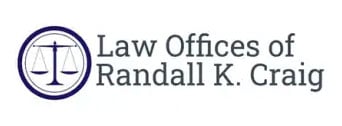JULY 2018
CURRENT ISSUES IN THE AREAS OF ESTATE, TAX AND PERSONAL AND BUSINESS PLANNING
The information that follows summarizes some of the current issues in the areas of estate, tax and personal and business planning which may be of interest to you. Although this information is accurate and authoritative, it is general in nature and not intended to constitute specific professional advice. For professional advice or more specific information, please contact my office.
Supported Decision Making. Supported decision making (“SDM”) is a concept that presumes that an individual with limited or failing capacity can still make choices with appropriate advice and guidance from others. The American Bar Association adopted a proposal in 2017 promoting SDM and urging states to amend their guardianship laws to require SDM. Since guardianship results in the loss of an individual’s right to make decisions, the SDM concept, if properly implemented, could augment the individual’s right to make life choices. Powers of attorney and health care advance directives can also be written in such a way as to require the attorney-in-fact or the health care representative to explain options, the nature of an illness, or a financial transaction, and then require the attorney-in-fact or health care representative to solicit input from the incapacitated person. It should be noted that Indiana’s guardianship statutes, as well as the Rules of Professional Conduct which govern the practice of law, already recognize that a person may have limited but not complete incapacity. For example, Indiana law requires a guardian to be acquainted with the incapacitated person, to maintain contact with the incapacitated person, and to know the incapacitated person’s capabilities and limitations. Also, the Indiana Rules of Professional Conduct require attorneys to maintain a normal client relationship, to the extent practicable, with an incapacitated person, and the rules recognize the ability of a person with diminished capacity to understand, deliberate upon, and to reach conclusions in respect of some matters.
Proposed VA Pension Rule Changes Delayed. Previous editions of this newsletter have addressed the proposed changes in the VA pension rules which would, among other things, impose a look-back period and transfer penalties in the VA pension program. It would also make a number of other changes. The final rule has still not been published and it is not certain at this time when or if it ever will be. Readers of this newsletter may wish to access the “Articles and Links” section of my website to review the articles and commentaries listed, particularly under the headings 2015 Elder Law Developments, 2016 Elder Law Developments, and 2017 Elder Law Developments. In addition, the article titled Special Needs Trusts for Asset Protection (Planning, Implementation, Recent Developments, and a Comparison of ABLE Accounts), and the article titled ABLE Accounts Under the Achieving a Better Life Experience Act of 2015, also address VA pension issues.
Insurance Mistakes Continued. A policy owner might be making a mistake if the owner surrenders a life insurance policy without first checking to determine whether it might make sense to sell the policy. The advent of the life settlement market makes it possible for at least older policy owners with relatively large policies to sell the policy for more than its cash surrender value. Of course, this assumes that an insured is comfortable with the idea that a third party owns a policy on his or her life and is essentially “betting” on how long he or she will live. The policy owner must always evaluate the risk of death, since the amount that one will receive from the sale of the life insurance policy is most likely going to be substantially less than the death benefit payable under the policy.
Charitable Contribution Substantiation. Federal tax law and the applicable regulations provide that a charitable contribution will be deductible only if it is verified and meets certain substantiation requirements. What is required depends on the type and value of the property contributed. In the case of cash contributions over $250, the charitable contribution must be acknowleged by the charity with a “contemporaneous written acknowledgment.” Cash contributions less than $250 require essentially bank records to document the contribution. In the case of property other than cash, if the value is over $250 but under $500, it must be acknowledged by the donee organization with a “contemporaneous written acknowledgment.” If the value is over $500, the donor must complete and attach a Form 8283 (Noncash Charitable Contributions) to his or her tax return. In addition, if the value of the property is more than $5,000, the taxpayer must obtain a qualified appraisal from a qualified appraiser in accordance with the applicable tax regulations. The taxpayer bears the burden of establishing that the substantiation requirements have been met. There have been many cases when substantial deductions have been denied because the substantiation requirements were not satisfied. In one case, a $33 million deduction was denied because the taxpayer did not provide the cost basis of the contributed property as a part of the appraisal summary on Form 8283. The failure to provide this information prevented “substantial compliance” from occurring. In another case, a charitable contribution of more than $64 million was denied because the substantiation letter failed to disclose that no goods or services had been provided in exchange for the donation.
Additional Information. Future issues of this Newsletter will address other issues of current interest. Please contact my office with any questions that you might have.

